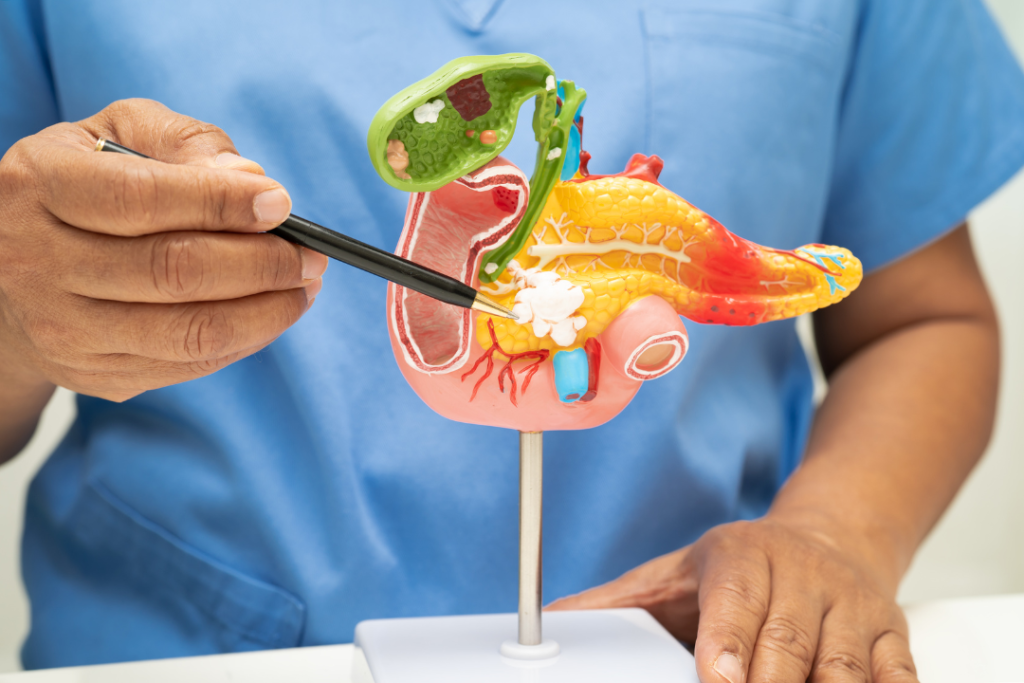
How Long Does Bloating Last After Gallbladder Removal?
Gallbladder removal—also known as cholecystectomy—is a common procedure that offers lasting relief for patients suffering from gallstones or gallbladder dysfunction. While recovery is generally smooth, one symptom that often surprises patients is bloating after gallbladder removal. It’s a common part of the healing process, but it can be uncomfortable and frustrating if you’re not prepared for it. In this post, we’ll explain why it happens, how long it typically lasts, and what you can do to manage it.
Why Bloating Happens After Gallbladder Surgery
The gallbladder plays a role in digesting fat by storing and releasing bile into the small intestine. Once it’s removed, your body still produces bile, but it flows continuously into your digestive system instead of being released in measured amounts. This change can lead to temporary digestive issues, especially with fatty or greasy foods.
Common causes of bloating after gallbladder removal include:
- Changes in bile flow disrupting normal digestion
- Air introduced during laparoscopic surgery irritating the abdominal lining
- Increased gas production as your body adjusts to new bile patterns
- Sensitivity to certain foods during the initial healing phase
Most patients will notice bloating, gas, or a feeling of fullness—especially after eating—even if they stick to a light diet.
How Long Does Bloating Last?
Bloating is most noticeable during the first few days to weeks after surgery. For many patients, it improves within 2 to 3 weeks as the digestive system adjusts. In some cases, mild bloating may persist for up to 2 months, especially if dietary changes take time or your body needs longer to rebalance bile flow.
If you’re wondering how long bloating after gallbladder removal typically lasts, here’s a general timeline:
- Days 1–7: Bloating is common and may be caused by gas from surgery itself.
- Week 2–3: Your body begins adapting to continuous bile flow; bloating should start decreasing.
- Weeks 4–8: Digestive discomfort improves; occasional bloating may still occur depending on your diet.
- After 2 months: Most patients no longer experience frequent bloating unless they consume fatty or greasy foods.
If bloating persists beyond two months or worsens over time, it’s important to follow up with your doctor to rule out complications or unrelated digestive issues.
Tips for Managing Bloating After Surgery
While bloating is a normal part of healing, there are several simple ways to ease symptoms and support your recovery.
1. Eat Smaller, More Frequent Meals
Instead of three large meals, aim for 5–6 smaller ones throughout the day. This puts less strain on your digestive system and helps bile work more effectively.
2. Limit Fatty and Fried Foods
Since your body is adjusting to digesting fat without the gallbladder, avoid foods like fried chicken, creamy sauces, and greasy snacks. Focus on lean proteins, steamed vegetables, and low-fat dairy.
3. Watch Out for Gas-Producing Foods
Some healthy foods—like beans, broccoli, and cabbage—can increase bloating. Try eliminating these temporarily and reintroducing them slowly to see how your body reacts.
4. Stay Hydrated
Drinking plenty of water helps move food through your digestive system and may reduce bloating.
5. Walk Daily
Light movement, such as walking, helps stimulate digestion and reduce trapped gas, especially after laparoscopic surgery.
6. Avoid Carbonated Beverages and Straws
Soda, sparkling water, and even chewing gum can introduce extra air into your system, leading to more bloating. Skip the bubbles for now.
When to Contact Your Surgeon
Bloating after gallbladder removal is typically harmless, but there are some symptoms that should prompt a follow-up:
- Bloating that worsens over time
- Severe or persistent abdominal pain
- Nausea or vomiting after eating
- Signs of infection, such as fever or redness around incision sites
- Difficulty passing gas or bowel movements
If you’re unsure whether your symptoms are normal, it’s always better to check in with your surgical team.
Long-Term Digestive Adjustments
Most people recover fully without long-term dietary restrictions. However, a small number of patients develop post-cholecystectomy syndrome, a condition involving persistent bloating, diarrhea, or abdominal discomfort. If symptoms don’t resolve after a couple of months, your doctor may recommend additional tests or refer you to a gastroenterologist.
The good news? For the vast majority of patients, symptoms like bloating after gallbladder removal fade quickly, and life returns to normal with just a few adjustments.
Final Thoughts
If you’re experiencing bloating after gallbladder removal, know that you’re not alone—and it’s usually temporary. With the right diet, hydration, and gentle movement, your body will adjust, and your digestive system will find its rhythm again. At Surgical Associates of Tulsa, we’re here to guide you through every stage of recovery. If you have concerns or questions after surgery, reach out to our team for expert support and care tailored to your needs.